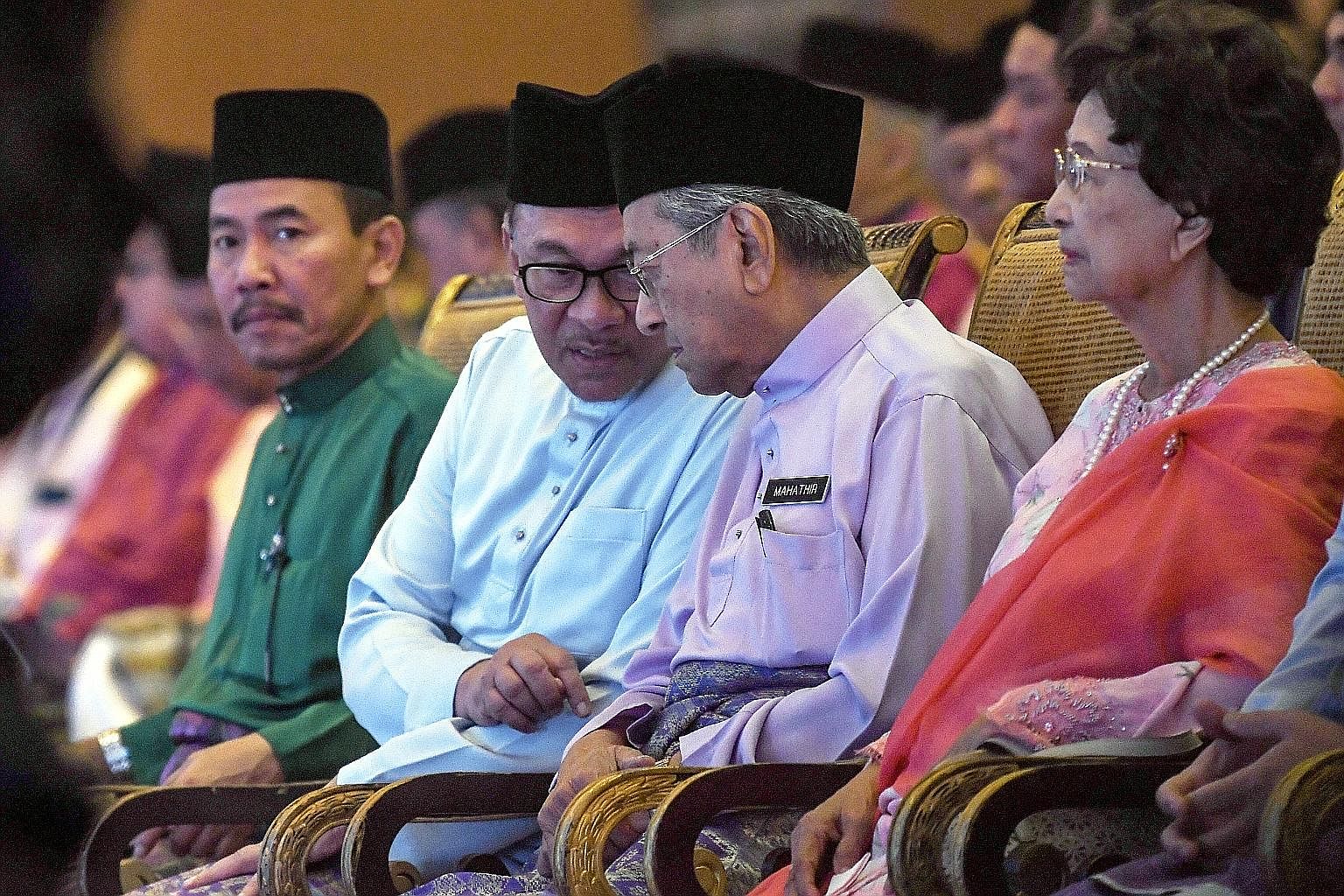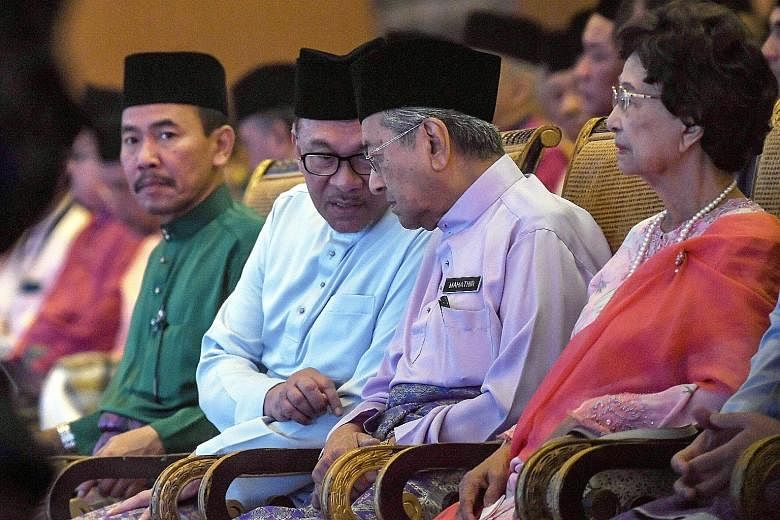Malaysians may have heralded a New Malaysia, with the euphoria still lingering, but more than four months have passed since the general election that saw the Barisan Nasional government crushed.
A new social landscape, perhaps, but old politics still hasn't faded away. As much as most loathe the politics of race and religion, the practice is a numbers game.
The politicians who have mastered the game understand the stakes, and they skilfully manoeuvre into positions to ensure their audience is convinced that their interest is protected.
The figures speak for themselves - about 95 per cent of Chinese voters chose Pakatan Harapan (PH) in the May 9 general election and more than 85 per cent supported the now-defunct Pakatan Rakyat coalition in 2013. About 70-75 per cent of Indians voted for PH, the figures from a Merdeka Center poll show. However, only 25-30 per cent of Malays voted for PH. In contrast, 35-40 per cent of Malays voted for Barisan Nasional while 30-33 per cent supported Parti Islam SeMalaysia (PAS).
Although a higher percentage of Malays voted for PH in Johor and in West Coast states including Melaka and Negeri Sembilan, PH's overall Malay support dwindled because of its weak performance in Kelantan and Terengganu.
Analysts have said the split Malay vote means PH leaders must tread carefully when framing issues deemed sensitive to the Malays, and Umno and PAS will try even harder to woo the Malays by using the familiar baits of race and religion.
Aware of the apprehension of many Malays, especially over the appointments of non-Malays in key government positions, and the notion that the Democratic Action Party has an upper hand in the PH government, Prime Minister Mahathir Mohamad and other leaders had to convene a special bumiputera meeting.

They read the ground sentiment well - that only 25-30 per cent of Malays voted for PH, but that was enough to kick out Barisan, and if this tiny fraction switches allegiance from PH, there's bound to be trouble ahead.
So Tun Dr Mahathir had to provide the assurance that the government was not out to persecute bumiputeras, but instead wants to ensure a fair and equitable solution is in place for the betterment of the community.
He reminded the Malays that in the past, many business opportunities had been given to bumiputeras under the New Economic Policy, but many sold their contracts and approved permits for healthy profits. "As long as we look for short cuts, we will not succeed," he said at the Future of the Bumiputera and Nation Congress 2018 last month.
Separately, late last month, Datuk Seri Anwar Ibrahim made a clarion call on the importance of Bahasa Malaysia (BM) and reaffirmed the position of the national language at Dewan Bahasa dan Pustaka, the government body responsible for regulating the use of the Malay language and literature.
The incoming Parti Keadilan Rakyat president urged all leaders and MPs to buck up on their BM, chiding those who had not made the effort to master the national language. "Whether you like it or not, parliamentary proceedings are in BM. Proficiency in the language is crucial." But he also said that emphasising BM did not "mean that other languages such as English and Mandarin were marginalised but must be mastered as second languages". This was a master politician at work, making sure to cover his bases.
'SUPER LIBERAL' GROUP
Also, he warned of the existence of a so-called "super liberal" group in the country, which he said strongly expressed its demands and pushed for their implementation. Without making specific references, he said the people from this group also denounced the views of those opposed to it.
"When we criticise them, we are attacked as if this country belongs to them. I tell them that we represent the majority in the country and we argue that in this country, we are also entitled to voice our views.
"They think that we must accept their views. If I touch a little on Islam and the Malays, they will raise an argument."
Certainly, Mr Anwar's words would earn him brownie points among the conservative Malays, who aren't necessarily rural voters. In fact, they are urban Malay professionals who aren't happy with what they perceive as radical changes to the status quo in the name of New Malaysia.
Even the Sultan of Johor, Sultan Ibrahim Sultan Iskandar, voiced his annoyance after an official letter by an Iskandar Puteri City Council member written in Chinese and English went viral.
Sultan Ibrahim decreed that any official letter involving the state government or local authorities in Johor must be written in the national language. "If the councillor does not know how to do his or her job, just resign. This is my warning, do not make this mistake again.
"All official letters involving the state government or local councils that use the official letterhead must be written in BM."
It was later clarified that what appeared on social media "did not paint the full picture" as the letter had, in fact, been written in English, Malay and Chinese.
Dr Mahathir has also found it necessary to do a balancing act. First, he issued a statement saying the Cabinet felt the caning of two women convicted of lesbian sex in Terengganu gave a bad impression of Islam, and that it "did not reflect the quality of justice and sympathy in Islam".
But he was also quick to follow up with an assurance, especially to the Malays, that Malaysia doesn't accept LGBT (lesbian, gay, bisexual and transgender) practices and same-sex marriages as the country eschews these values.
He said that even though the government respects the recommendations made by the Malaysian Human Rights Commission (Suhakam), it would not accept "everything".
The LGBT issue is a big "no" within the Malay community - likewise with many Malaysians of other faiths. It is tolerated but not to be advocated - that is the line.
And Malay PH politicians walking the fine line of 30 per cent votes understand that they need to retain this support and, likely, increase it, which will hopefully take shape in the form of new voters turning 18 by the next general election.
The New Malaysia has given rise to new hopes, new expectations and new ways of doing things, but in the end, some things will just never change - at least, not overnight - and until then, Malaysians must learn to handle all of this more tactfully to pave the way ahead.
THE STAR/ASIA NEWS NETWORK
•Wong Chun Wai is The Star Media Group's managing director and CEO.

